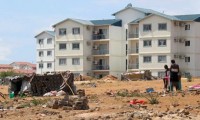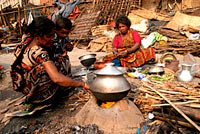With the recent implementation of the Pacifying Police Units (UPP) in several favelas in Rio de Janeiro, the gentrification process can already be observed, due to the vergitinous real estate valuation and to the rise in costs of infrastructure. Testimonies from residents of Chapéu Mangueira, a community in the Leme neighborhood, question the consequences of the current government’s policy, alerting the population so that the favela culture is not lost.


